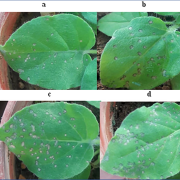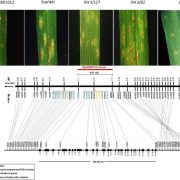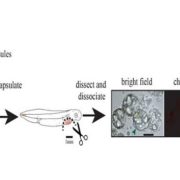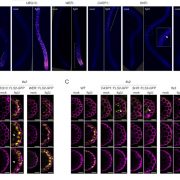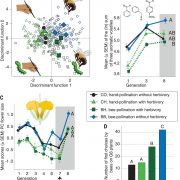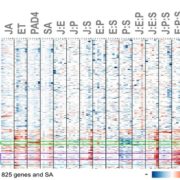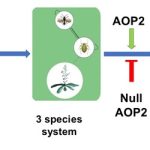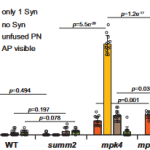Bacterial avirulence gene encodes for a secreted protease and restricts host range (Mol Plant Path)
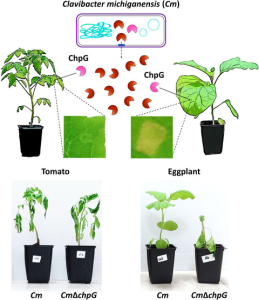 Plant pathogenic bacteria of the genus Clavibacter tend to have a narrow host range, but different species affect many important crops. Clavibacter michiganensis (Cm) causes bacterial wilt and canker in tomato, pepper and a few varieties of eggplant. There are no Cm-resistant tomato varieties but many eggplant varieties are resistant to the disease. Most Cm virulence determinants are clustered in the chp/tomA pathogenicity island (PI). Cm lacks any known translocation apparatus and therefore relies on extracellular virulence factors like hydrolases encoded in the PI. To better understand Cm host range, Verma and Teper infected tomato, pepper and eggplant with a collection of PI mutants of Cm. The authors then screened the infected plants for the hypersensitive response (HR) that is indicative of resistance. With this, the authors identified ChpG as the protein that elicits HR and is therefore recognised in many resistant varieties. ChpG had previously been reported to also trigger HR in nonhost plants. ChpG is a serine protease and its activity is required for host recognition. In fact, ChpG mutants of Cm are pathogenic on eggplant varieties that are resistant to the wild-type Cm. This suggest that this secreted protease is a determinant of host range for the bacteria. (Summary by Mariana Schuster @MariSchuster) Mol. Plant Pathol 10.1111/mpp.13215
Plant pathogenic bacteria of the genus Clavibacter tend to have a narrow host range, but different species affect many important crops. Clavibacter michiganensis (Cm) causes bacterial wilt and canker in tomato, pepper and a few varieties of eggplant. There are no Cm-resistant tomato varieties but many eggplant varieties are resistant to the disease. Most Cm virulence determinants are clustered in the chp/tomA pathogenicity island (PI). Cm lacks any known translocation apparatus and therefore relies on extracellular virulence factors like hydrolases encoded in the PI. To better understand Cm host range, Verma and Teper infected tomato, pepper and eggplant with a collection of PI mutants of Cm. The authors then screened the infected plants for the hypersensitive response (HR) that is indicative of resistance. With this, the authors identified ChpG as the protein that elicits HR and is therefore recognised in many resistant varieties. ChpG had previously been reported to also trigger HR in nonhost plants. ChpG is a serine protease and its activity is required for host recognition. In fact, ChpG mutants of Cm are pathogenic on eggplant varieties that are resistant to the wild-type Cm. This suggest that this secreted protease is a determinant of host range for the bacteria. (Summary by Mariana Schuster @MariSchuster) Mol. Plant Pathol 10.1111/mpp.13215


